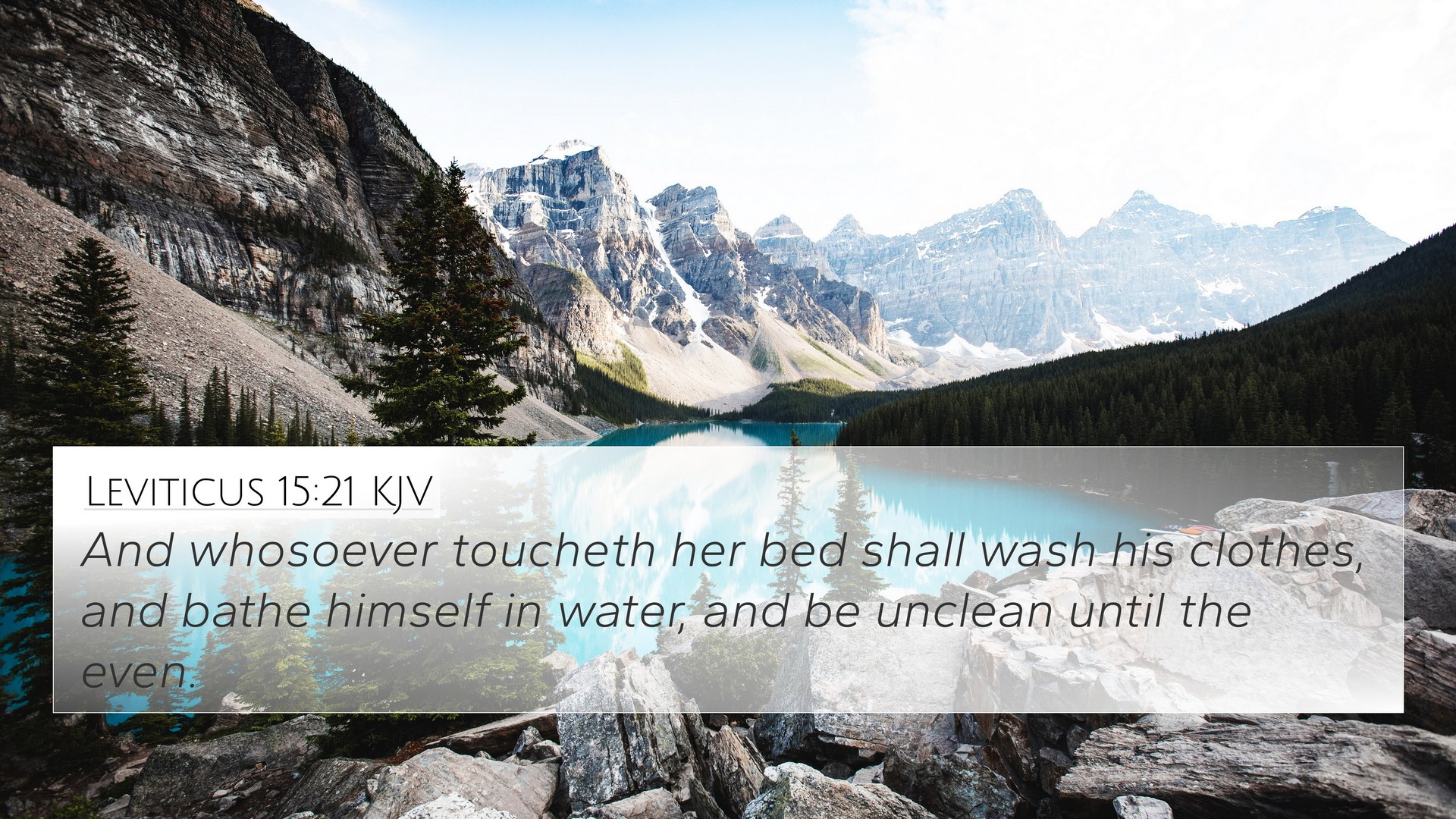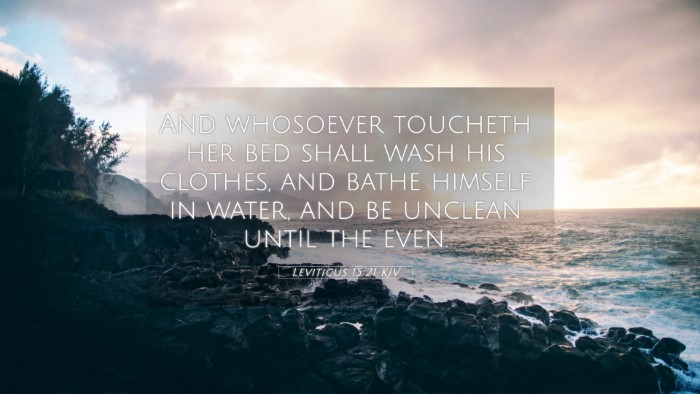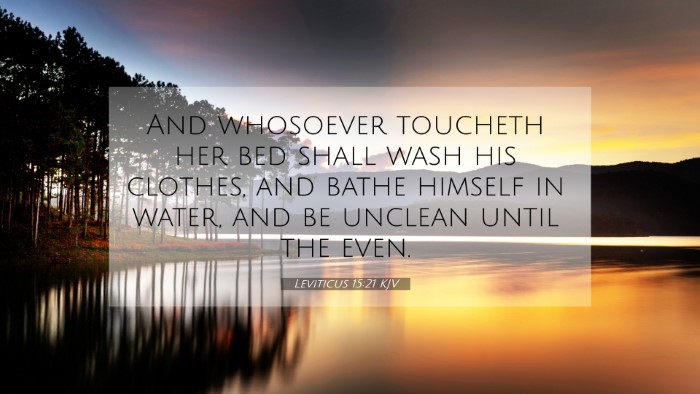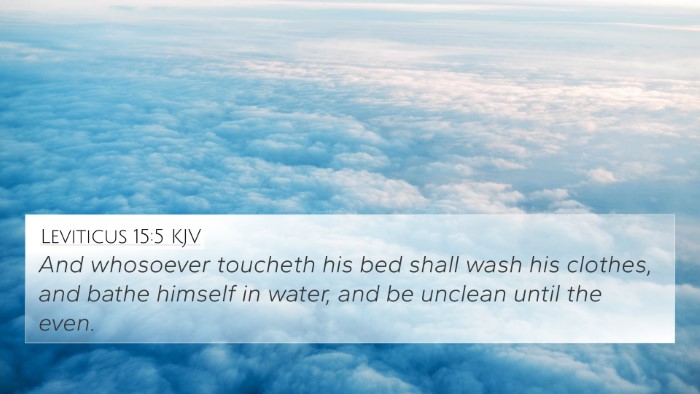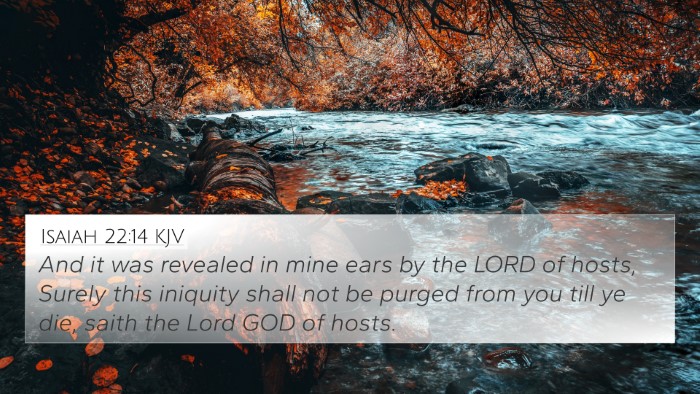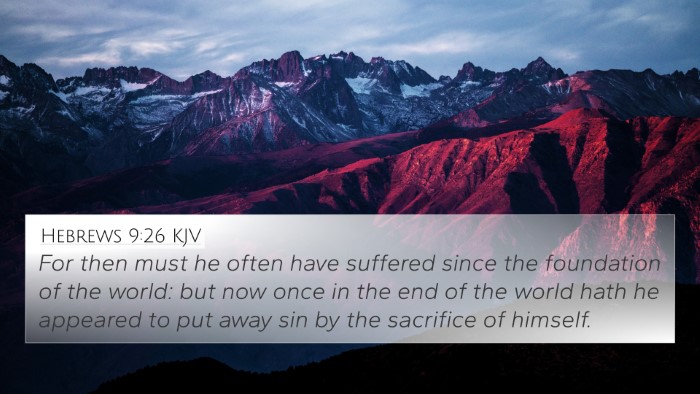Understanding Leviticus 15:21
Leviticus 15:21 states:
"And whosoever toucheth her that hath the issue of her uncleanness shall wash his clothes, and bathe himself in water, and be unclean until the evening."
Summary of Meaning
This verse addresses the impurity associated with touching someone who is ceremonially unclean due to bodily issues, particularly concerning menstruation or other discharges, which was prevalent in ancient Israel. It highlights the need for ritual cleanliness as prescribed in the Mosaic Law, emphasizing both physical and spiritual purity required by God.
Commentary Insights
-
Matthew Henry:
Henry explains that this law serves to remind the Israelites of the demands of holiness that God expects from His people. Those who come into contact with someone suffering from such an issue must perform rituals to restore their own purity, showcasing the importance of maintaining a holy community.
-
Albert Barnes:
Barnes notes that the act of washing and remaining unclean until evening serves as a practical guide for the Israelites regarding bodily discharges. He emphasizes how physical cleanliness is tied to spiritual readiness, a recurring theme in Biblical laws.
-
Adam Clarke:
Clarke discusses the broader implications of ceremonial uncleanness and its significance within the context of worship and community. He highlights that such regulations underscore God’s desire for His people to approach Him in purity.
Cross-References and Thematic Connections
Leviticus 15:21 connects with several other verses, forming a framework for understanding purity laws in the Bible. The following references demonstrate this connection:
- Leviticus 15:19-20: Discusses the consequences of a woman's menstruation, setting the stage for Leviticus 15:21’s directive.
- Leviticus 11:40: Addresses the need for washed clothing and the implications of contact with unclean animals, exemplifying the significance of cleanliness.
- Numbers 5:2-3: Expands on the necessity of quarantining individuals with certain bodily issues from the camp, further illustrating community health and purity.
- 2 Corinthians 6:17: "Come out from among them and be separate," which echoes the call for purity in the New Testament context.
- Hebrews 10:22: Speaks to the importance of approaching God with a sincere heart and full assurance of faith, emphasizing spiritual purity.
- Isaiah 52:11: "Depart, depart, go out from there; touch no unclean thing," which directly relates to maintaining holiness and separation from what is unclean.
- Mark 5:27-29: The story of the woman with the issue of blood, who touches Jesus, displaying themes of uncleanness and the transformative power of contact with the holy.
Practical Application
Understanding Leviticus 15:21 and its surrounding verses allows for a deeper appreciation of how God’s laws are aimed at safeguarding His people's holiness. For modern readers, this insight can be applied in a figurative manner, encouraging personal reflections on purity, both physically and spiritually.
Conclusion
The verse serves a critical role in the broader narrative of Leviticus, highlighting the connection between physical actions and spiritual standing before God. The call for clarity and adherence to these laws is not merely about ritual but points to a deeper relationship with God that is rooted in purity.
Tools for Further Study
For in-depth study and understanding, utilizing a Bible concordance or Bible cross-reference guide can significantly enhance one’s ability to make comparative Bible verse analysis. Understanding these scriptures through cross-referencing Bible study methods helps in grasping thematic connections across different books.
